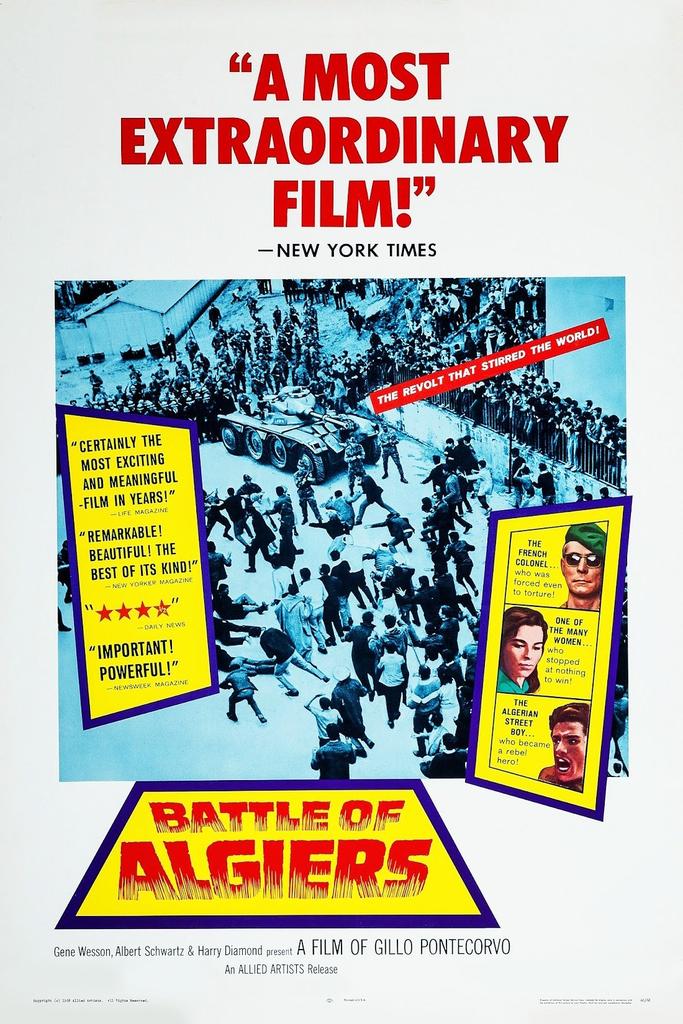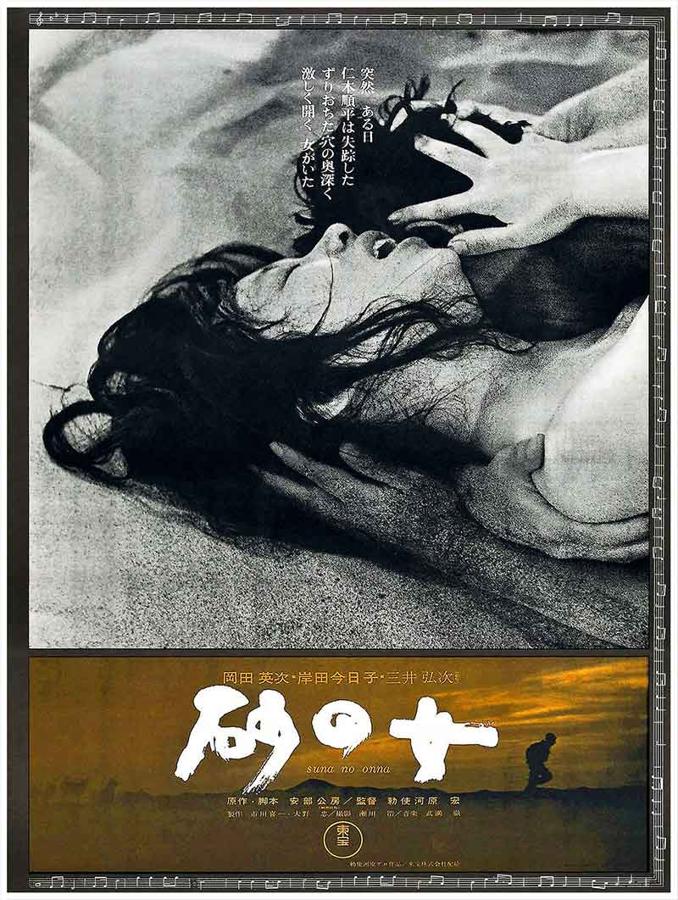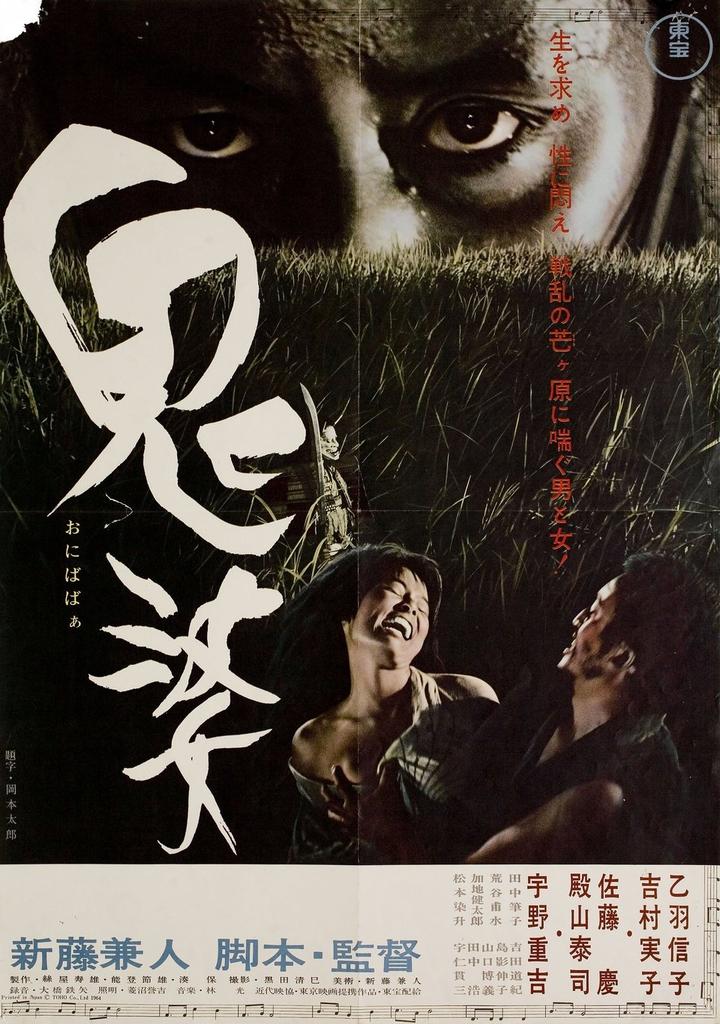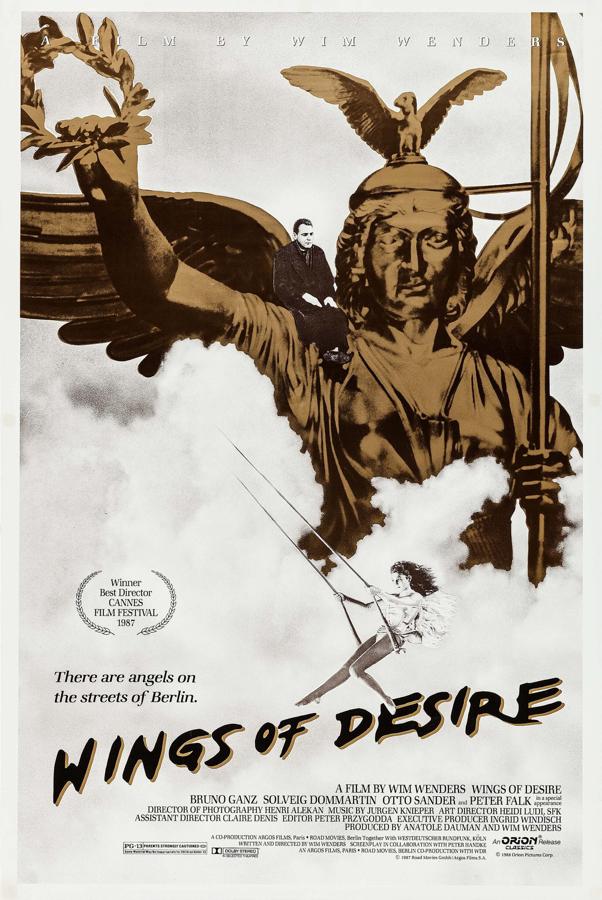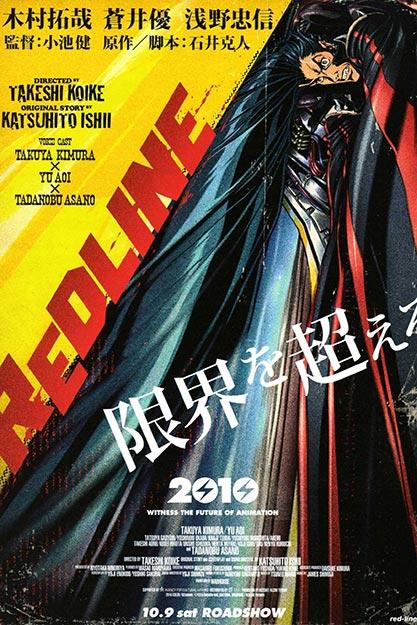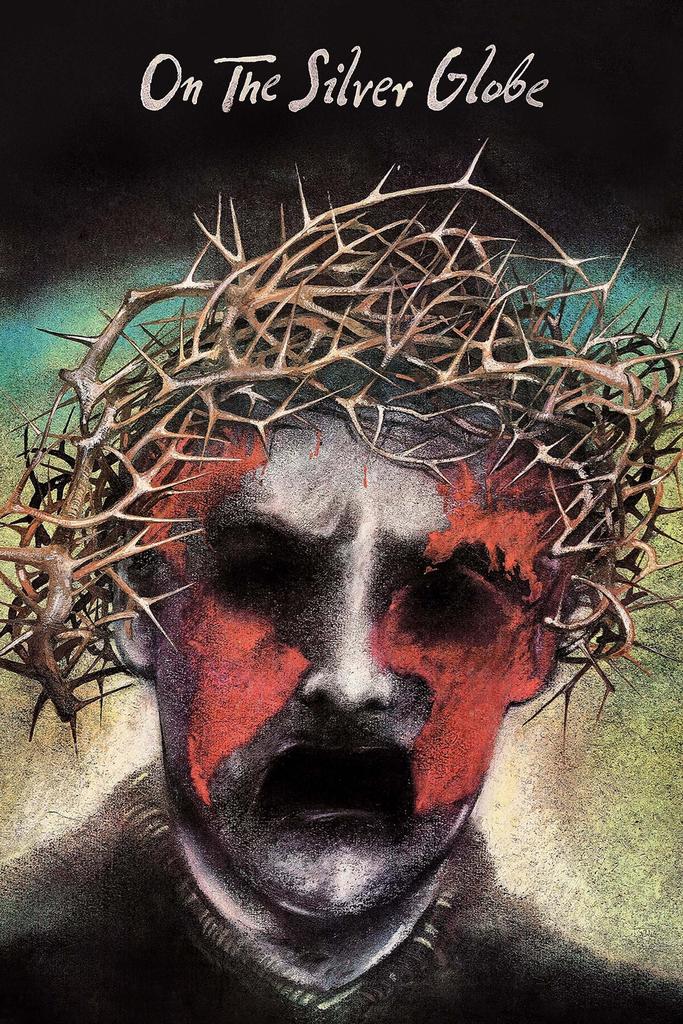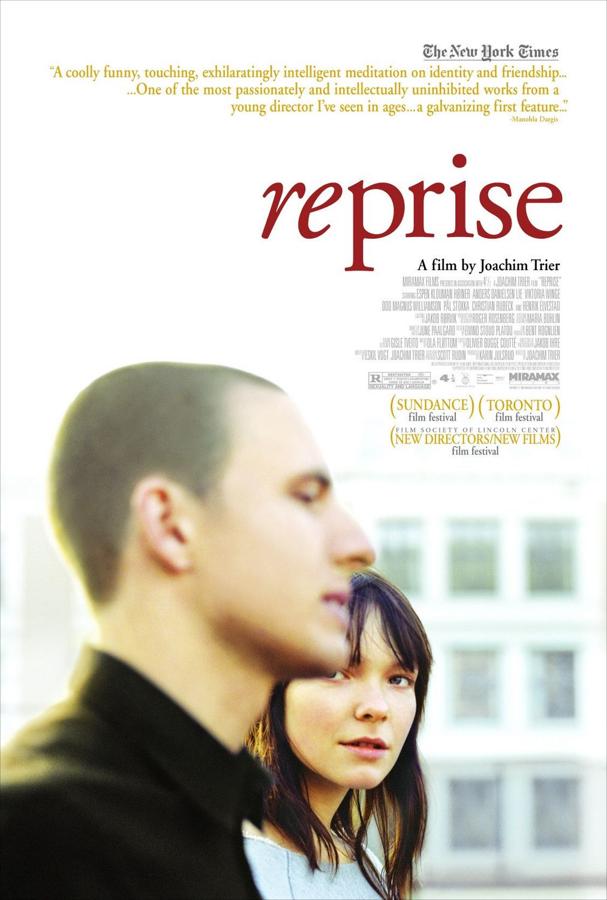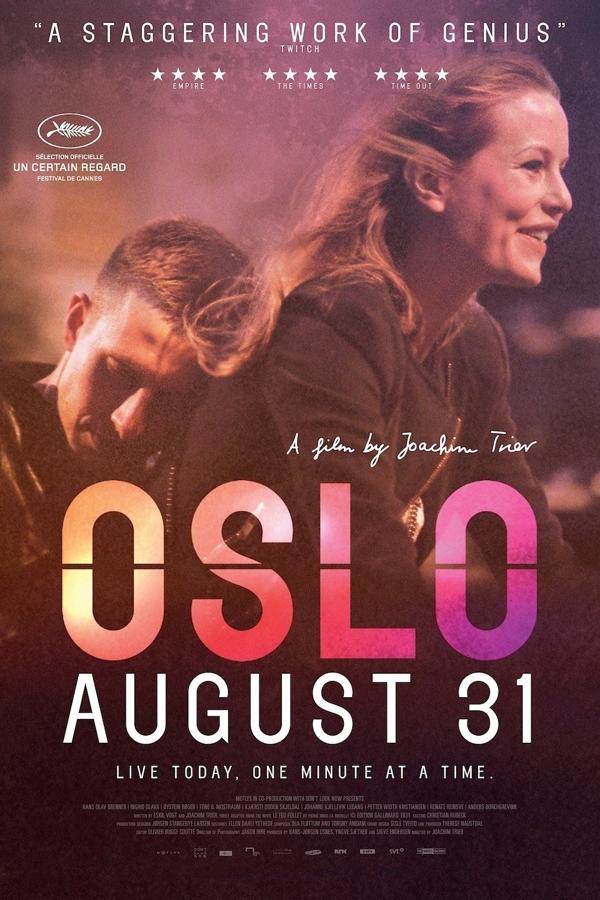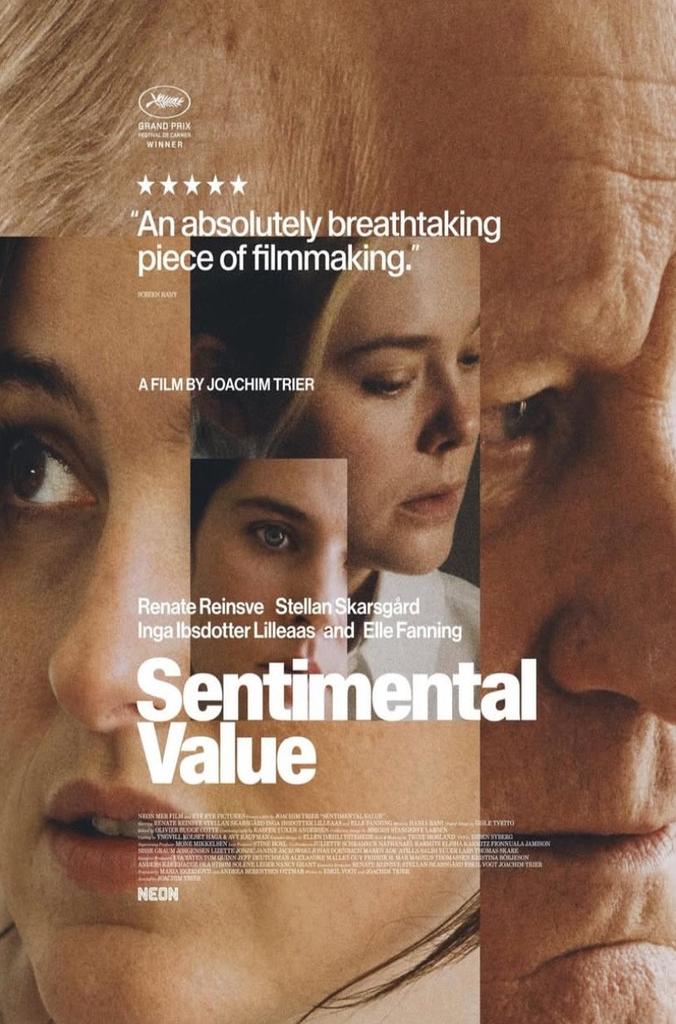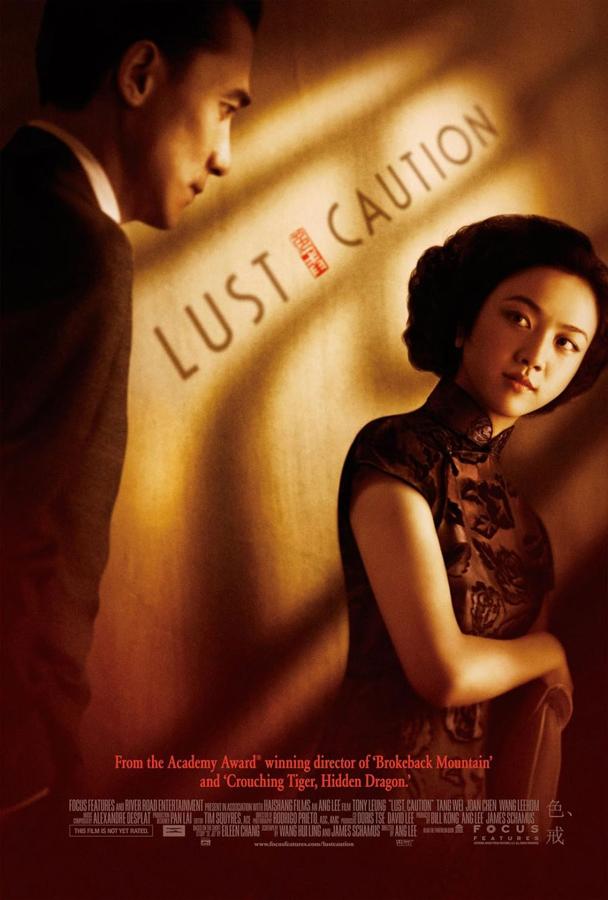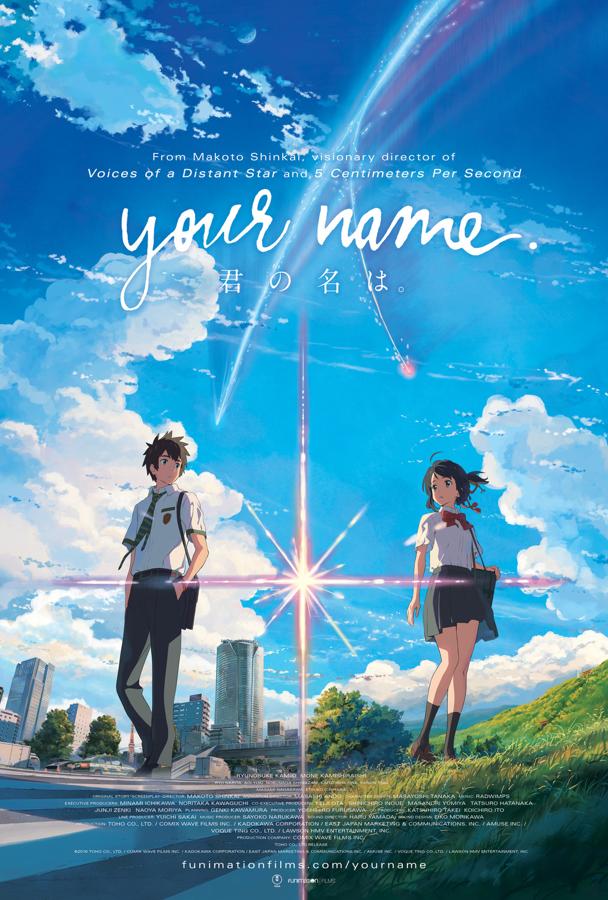
In an unnamed country at an unspecified time, there is a fiercely protected post-apocalyptic wasteland known as The Zone. An illegal guide (Aleksandr Kajdanovsky), whose mutant child suggests unspeakable horrors within The Zone, leads a writer (Anatoliy Solonitsyn) and a scientist (Nikolay Grinko) into the heart of the devastation in search of a mythical place known only as The Room. Anyone who enters The Room will supposedly have any of his earthly desires immediately fulfilled.
-
Monday 23rd FebruaryBook 3:00 pm
-
Sunday 29th MarchBook 3:00 pm
A cornerstone of the French New Wave, the first feature from Alain Resnais is one of the most influential films of all time. A French actress (Emmanuelle Riva) and a Japanese architect (Eiji Okada) engage in a brief, intense affair in postwar Hiroshima, their consuming mutual fascination impelling them to exorcise their own scarred memories of love and suffering. With an innovative flashback structure and an Academy Award–nominated screenplay by novelist Marguerite Duras, Hiroshima mon amour is a moody masterwork that delicately weaves past and present, personal pain and public anguish.
-
Tuesday 24th FebruaryBook 11:45 am
-
Thursday 16th AprilBook 11:45 am
Jeanne Dielman (Delphine Seyrig), the widowed mother of a teenage son, Sylvain (Jan Decorte), ekes out a drab, repetitive existence in her tiny Brussels apartment. Jeanne's days are divided between humdrum domestic chores -- shopping, cooking, housework -- and her job as an occasional prostitute, which keeps her financially afloat. She seems perfectly resigned to her situation until a series of slight interruptions in her routine leads to unexpected and dramatic changes.
-
Tuesday 24th FebruaryBook 1:55 pm4K
A winner of awards across the world including Best Foreign Language Film Oscar, 5 BAFTA Awards including Best Actor, Original Screenplay and Score, the Grand Prize of the Jury at the Cannes Film Festival and many more.
Giuseppe Tornatore's loving homage to the cinema tells the story of Salvatore, a successful film director, returning home for the funeral of Alfredo, his old friend who was the projectionist at the local cinema throughout his childhood. Soon memories of his first love affair with the beautiful Elena and all the highs and lows that shaped his life come flooding back, as Salvatore reconnects with the community he left 30 years earlier.
-
Wednesday 25th FebruaryBook 11:55 am4K
-
Sunday 29th MarchBook 8:30 pm4K
-
Monday 13th AprilBook 12:00 pm
The extraordinary, internationally embraced Yi Yi (A One and a Two . . .), directed by the late Taiwanese master Edward Yang, follows a middle-class family in Taipei over the course of one year, beginning with a wedding and ending with a funeral. Whether chronicling middle-age father NJ’s tentative flirtations with an old flame or precocious young son Yang-Yang’s attempts at capturing reality with his beloved camera, the filmmaker deftly imbues every gorgeous frame with a compassionate clarity. Warm, sprawling, and dazzling, this intimate epic is one of the undisputed masterworks of the new century.
4K digital restoration carried out by Pony Canyon Inc., with analog and digital processes provided by Imagica Entertainment Media Services, Inc.
-
Wednesday 25th FebruaryBook 2:40 pm4K
-
Friday 6th MarchBook 8:20 pm4K
-
Monday 23rd MarchBook 2:15 pm4K
-
Sunday 12th AprilBook 7:30 pm4K
-
Friday 24th AprilBook 2:05 pm4K
-
Friday 8th MayBook 8:10 pm4K
The ambassador of the Latin American republic of Miranda (Fernando Rey), M. Thevenot (Paul Frankeur), his wife Simone (Delphine Seyrig) and her sister Florence (Bulle Ogier) arrive for a dinner party at the house of Alice Sénéchal (Stéphane Audran) and her husband Henri (Jean-Pierre Cassel), only to learn that they were mistaken about the date. In director Luis Buñuel's surreal fantasy, the six bourgeois friends repeatedly gather for a dinner that never quite arrives.
-
Thursday 26th FebruaryBook 12:15 pm
Bong Joon Ho brings his singular mastery home to Korea in this pitch-black modern fairytale.
Meet the Park Family: the picture of aspirational wealth. And the Kim Family, rich in street smarts but not much else. Be it chance or fate, these two houses are brought together and the Kims sense a golden opportunity. Masterminded by college-aged Ki-woo, the Kim children expediently install themselves as tutor and art therapist, to the Parks. Soon, a symbiotic relationship forms between the two families. The Kims provide “indispensable” luxury services while the Parks obliviously bankroll their entire household. When a parasitic interloper threatens the Kims’ newfound comfort, a savage, underhanded battle for dominance breaks out, threatening to destroy the fragile ecosystem between the Kims and the Parks. By turns darkly hilarious and heart-wrenching, PARASITE showcases a modern master at the top of his game.
-
Friday 27th FebruaryBook 12:00 pm
When a machine that allows therapists to enter their patients' dreams is stolen, all hell breaks loose. Only a young female therapist, Paprika, can stop it.
-
Friday 27th FebruaryBook 12:15 pm4KSUB
-
Wednesday 22nd AprilBook 3:00 pm4KSUB
Paratrooper commander Colonel Mathieu, a former French Resistance fighter during World War II, is sent to Algeria to reinforce efforts to squelch the uprisings of the Algerian War. There he faces Ali la Pointe, a former petty criminal who, as the leader of the Algerian Front de Liberation Nationale, directs terror strategies against the colonial French government occupation. As each side resorts to ever-increasing brutality, no violent act is too unthinkable.
-
Friday 27th FebruaryBook 3:00 pm
-
Sunday 22nd MarchBook 5:00 pm
"THE COLOUR OF ILLUSION IS PERFECT BLUE"
A young Japanese singer is encouraged by her agent to quit singing and pursue an acting career, beginning with a role in a murder mystery TV show.
-
Saturday 28th FebruaryBook 3:00 pm4KSUB
-
Sunday 29th MarchBook 6:25 pm4KSUB
-
Tuesday 21st AprilBook 6:00 pm4KSUB
In 1962 Hong Kong, neighbors Su Li-zhen (Mrs. Chan) and Chow Mo-wan (Mr. Chow) discover their spouses are having an affair. As they spend time together, they develop feelings for each other, but their relationship remains chaste and unspoken, reflecting societal constraints and their own moral compass.
-
Saturday 28th FebruaryBook 5:30 pm35mm
-
Friday 20th MarchBook 6:00 pm35mm
-
Saturday 28th MarchBook 5:55 pm35mm
-
Sunday 5th AprilBook 2:10 pm35mm
-
Sunday 12th AprilBook 4:50 pm35mm
-
Saturday 18th AprilBook 8:45 pm35mm
-
Sunday 26th AprilBook 6:00 pm35mm
-
Tuesday 28th AprilBook 3:30 pm4K
-
Friday 1st MayBook 6:00 pm35mm
-
Tuesday 5th MayBook 12:00 pm4K
-
Saturday 9th MayBook 5:45 pm35mm
-
Sunday 17th MayBook 5:45 pm
In the 14th century, the harmony that humans, animals and gods have enjoyed begins to crumble. The protagonist, young Ashitaka - infected by an animal attack, seeks a cure from the deer-like god Shishigami. In his travels, he sees humans ravaging the earth, bringing down the wrath of wolf god Moro and his human companion Princess Mononoke. His attempts to broker peace between her and the humans brings only conflict.
-
Sunday 1st MarchBook 2:00 pm4KSUB
-
Tuesday 24th MarchBook 11:45 amSUB
-
Friday 24th AprilBook 12:00 pmSUB
An entomologist misses the last bus home and spends the night sharing a young widow’s desert shack, only to find the next morning that he’s unable to leave. He soon becomes psychologically and erotically entangled in her strange existence, which includes a daily ritual of shovelling away endlessly drifting sand.
Winner of a Special Jury Prize at Cannes in 1964 and nominated for two Academy Awards for Best Foreign Film and Best Director, the film combines an extremely erotic drama with a terrifically gripping thriller. Adapted from Kobe Abe’s novel by acclaimed director Hiroshi Teshigahara, the film also features startling high-contrast black and white photography from Hiroshi Segawa and a superb minimalist score by Toru Takemitsu.
-
Sunday 1st MarchBook 5:25 pm35mm
-
Sunday 26th AprilBook 11:45 am35mm
An assassin goes through obstacles as he attempts to escape his violent lifestyle despite the opposition of his partner, who is secretly attracted to him.
-
Monday 2nd MarchBook 3:20 pm4K
-
Thursday 2nd AprilBook 2:45 pm4K
-
Sunday 3rd MayBook 2:25 pm4K
While her son, Kichi, is away at war, a woman and her daughter-in-law survive by killing samurai who stray into their swamp, then selling whatever valuables they find. Both are devastated when they learn that Kichi has died, but his wife soon begins an affair with a neighbor who survived the war, Hachi. The mother disapproves and, when she can't steal Hachi for herself, tries to scare her daughter-in-law with a mysterious mask from a dead samurai.
-
Monday 2nd MarchBook 6:00 pm
Hatred breeds hatred...
24 hours in the lives of three young men in the French suburbs the day after a violent riot.
-
Tuesday 3rd MarchBook 12:00 pm4K
-
Friday 27th MarchBook 3:20 pm4K
-
Monday 13th AprilBook 6:00 pm4K
-
Friday 24th AprilBook 11:45 am4K
-
Thursday 7th MayBook 5:45 pm4K
In a small Castilian village in 1940, in the wake of Spain's devastating civil war, six-year-old Ana attends a traveling movie show of Frankenstein and becomes possessed by the memory of it. Produced as Franco's long regime was nearing its end and widely regarded as the greatest Spanish film of the 1970s, The Spirit of the Beehive is a bewitching portrait of a child's haunted inner life and one of the most visually arresting movies ever made.
-
Tuesday 3rd MarchBook 5:35 pm
While the Civil War rages on between the Union and the Confederacy, three men – a quiet loner, a ruthless hitman, and a Mexican bandit – comb the American Southwest in search of a strongbox containing $200,000 in stolen gold.
-
Tuesday 3rd MarchBook 8:00 pm35mm
Mr. Watanabe suddenly finds that he has terminal cancer. He vows to make his final days meaningful. His attempts to communicate his anguish to his son and daughter-in-law lead only to heartbreak. Finally, inspired by an unselfish co-worker, he turns his efforts to bringing happiness to others by building a playground in a dreary slum neighborhood. When the park is finally completed, he is able to face death with peaceful acceptance.
-
Wednesday 4th MarchBook 3:00 pm35mm
Dae-Su is an obnoxious drunk bailed from the police station yet again by a friend. However, he's abducted from the street and wakes up in a cell, where he remains for the next 15 years, drugged unconscious when human contact is unavoidable, otherwise with only the television as company. And then, suddenly released, he is invited to track down his jailor with a denouement that is simply stunning.
-
Thursday 5th MarchBook 11:45 am4K
-
Sunday 29th MarchBook 8:15 pm35mm
-
Thursday 30th AprilBook 12:00 pm35mm
A cop who loses his partner in a shoot-out with gun smugglers goes on a mission to catch them. In order to get closer to the leaders of the ring he joins forces with an undercover cop who's working as a gangster hitman. They use all means of excessive force to find them.
Please Note: We plan to have the 35mm print of Hard Boiled on site in the New Year to check on its quality, and if we find it is unsuitable for screening, we will switch to the new 4K restoration courtesy of Arrow Films!
-
Friday 6th MarchBook 3:00 pm35mm
-
Saturday 7th MarchBook 5:30 pm35mm
-
Monday 9th MarchBook 3:15 pm35mm
-
Tuesday 10th MarchBook 12:00 pm35mm
-
Wednesday 11th MarchBook 8:30 pm35mm
-
Thursday 12th MarchBook 3:00 pm35mm
-
Friday 13th MarchBook 5:30 pm35mm
-
Wednesday 13th MayBook 6:00 pm
Farmers from a village exploited by bandits hire a veteran samurai for protection, who gathers six other samurai to join him.
-
Saturday 7th MarchBook 11:00 am
This fiction-documentary hybrid uses a sensational real-life event—the arrest of a young man on charges that he fraudulently impersonated the well-known filmmaker Mohsen Makhmalbaf—as the basis for a stunning, multilayered investigation into movies, identity, artistic creation, and existence, in which the real people from the case play themselves.
-
Saturday 7th MarchBook 3:10 pm
-
Monday 30th MarchBook 12:15 pm
-
Tuesday 5th MayBook 6:00 pm
Filmmaker Genya Tachibana begins work on a documentary about famed Japanese actress Chiyoko Fujiwara. Now well into old age, Chiyoko has become reclusive and shy about any publicity, but she eventually warms up to Tachibana and starts to relate her life story. As the decades pass, Chiyoko is transformed from a teen with big dreams into a full-blown celebrity, while her cinematic characters span various eras, from ancient Japan to the distant future.
-
Sunday 8th MarchBook 2:15 pm4KSUBUnreserved
Baron Meier Link is of a dying race, but the vampire doesn't intend to remain lonely much longer. Abducting women in the night is common for his kind, so what's one more? But Charlotte's father has plenty of money, and there's no price he won't pay to get his daughter back. That's why he hires D.
D is a Dunpeal, a breed rarer than that of the vampires - after all, he's half of one. When it comes to hunting those with fangs like his own, he's the best in the business. But that doesn't mean he's the only game in town. The Markus Brothers are on the vampire's trail as well, and they're not about to lose. It's a race, not only between the rival Hunters, but for the vampire and his bride-to-be. But it might be more than just a job to D. Is Charlotte really a captive? Or will another Dunpeal be born to this world?
-
Sunday 8th MarchBook 8:15 pmSUB
This widely acclaimed film from Soviet director Elem Klimov is a stunning, senses-shattering plunge into the dehumanizing horrors of war. As Nazi forces encroach on his small village in present-day Belarus, teenage Flyora (Aleksei Kravchenko, in one of the screen’s most searing depictions of anguish since Renée Falconetti’s Joan of Arc) eagerly joins the Soviet resistance. Rather than the adventure and glory he envisioned, what he finds is a waking nightmare of unimaginable carnage and cruelty—rendered with a feverish, otherworldly intensity by Klimov’s subjective camerawork and expressionistic sound design. Nearly suppressed by Soviet censors who took eight years to approve its script, Come and See is perhaps the most visceral, impossible-to-forget antiwar film ever made.
-
Tuesday 10th MarchBook 8:45 pm
-
Sunday 10th MayBook 2:00 pm
Andrei Tarkovsky’s extraordinarily accomplished debut feature ‘Ivan’s Childhood’ is a powerful and moving tale of a 12-year-old boy who vows to avenge his family’s death at the hands of the Nazis.
Striking up a friendship with three sympathetic Soviet officers, young Ivan becomes a spy on the eastern front.
The film was awarded the Golden Lion at Venice Film Festival in 1962 and brought the Russian director international acclaim. A haunting and poetic depiction of a childhood ravaged by war.
★★★★★ “It is one of the great coups de cinéma. Unmissable” - Peter Bradshaw, The Guardian
-
Wednesday 11th MarchBook 12:00 pm
Hirayama is content with his life as a toilet cleaner in Tokyo. Outside of his structured routine, he cherishes music on cassette tapes, books, and taking photos of trees. Through unexpected encounters, he reflects on finding beauty in the world.
-
Thursday 12th MarchBook 12:00 pm
-
Wednesday 29th AprilBook 12:00 pm
In a corrupt, greed-fueled world, a powerful alchemist leads a messianic character and seven materialistic figures to the Holy Mountain, where they hope to achieve enlightenment.
-
Monday 16th MarchBook 11:25 am
-
Sunday 19th AprilBook 11:45 am
Clumsy Monsieur Hulot (Jacques Tati) finds himself perplexed by the intimidating complexity of a gadget-filled Paris. He attempts to meet with a business contact but soon becomes lost. His roundabout journey parallels that of an American tourist (Barbara Dennek), and as they weave through the inventive urban environment, they intermittently meet, developing an interest in one another. They eventually get together at a chaotic restaurant, along with several other quirky characters.
-
Tuesday 17th MarchBook 3:00 pm
-
Sunday 29th MarchBook 2:45 pm
-
Sunday 3rd MayBook 12:15 pm
Set in feudal Japan, this film presents an intriguing tale of violent crime in the woods, told from the perspective of four different characters -- a bandit, a woman, her husband and a woodcutter. Only two things about the incident seem to be clear -- the woman was raped and her husband is now dead. However, the other elements radically differ as the four participants and/or witnesses relate their own stories (with the dead man, eerily enough, speaking through a medium). As each account is revealed, what seemed black-and-white turns to various hues of gray, leading to surprising -- and confounding -- revelations.
-
Tuesday 17th MarchBook 5:15 pm
In this animated feature by noted Japanese director Hayao Miyazaki, 10-year-old Chihiro (Rumi Hiiragi) and her parents (Takashi Naitô, Yasuko Sawaguchi) stumble upon a seemingly abandoned amusement park. After her mother and father are turned into giant pigs, Chihiro meets the mysterious Haku (Miyu Irino), who explains that the park is a resort for supernatural beings who need a break from their time spent in the earthly realm, and that she must work there to free herself and her parents.
-
Thursday 19th MarchBook 11:30 amSUB
-
Saturday 4th AprilBook 12:00 pmSUB
Mob assassin Jeffrey is no ordinary hired gun; the best in his business, he views his chosen profession as a calling rather than simply a job. So, when beautiful nightclub chanteuse Jennie is blinded in the crossfire of his most recent hit, Jeffrey chooses to retire after one last job to pay for his unintended victim's sight-restoring operation. But when Jeffrey is double-crossed, he reluctantly joins forces with a rogue policeman to make things right.
-
Friday 20th MarchBook 3:15 pm
-
Saturday 21st MarchBook 5:45 pm
-
Monday 23rd MarchBook 3:15 pm
-
Wednesday 25th MarchBook 8:45 pm
-
Thursday 26th MarchBook 3:00 pm
-
Wednesday 13th MayBook 8:50 pm
Two angels, Damiel (Bruno Ganz) and Cassiel (Otto Sander), glide through the streets of Berlin, observing the bustling population, providing invisible rays of hope to the distressed but never interacting with them. When Damiel falls in love with lonely trapeze artist Marion (Solveig Dommartin), the angel longs to experience life in the physical world, and finds--with some words of wisdom from actor Peter Falk (playing himself) -- that it might be possible for him to take human form.
-
Sunday 22nd MarchBook 11:45 am
An angelically beautiful Catherine Deneuve was launched to stardom by this dazzling musical heart-tugger from Jacques Demy. She plays an umbrella-shop owner’s delicate daughter, glowing with first love for a handsome garage mechanic, played by Nino Castelnuovo. When the boy is shipped off to fight in Algeria, the two lovers must grow up quickly. Exquisitely designed in a kaleidoscope of colors, and told entirely through the lilting songs of the great composer Michel Legrand, The Umbrellas of Cherbourg is one of the most revered and unorthodox movie musicals of all time.
-
Monday 23rd MarchBook 12:00 pm
-
Sunday 10th MayBook 11:45 am
In 1986, Park (Song Kang-ho) and Cho (Kim Roi-ha) are two simple-minded detectives assigned to a double murder investigation in a South Korean province. But when the murderer strikes several more times with the same pattern, the detectives realize that they are chasing the country's first documented serial killer. Relying on only their basic skills and tools, Park and Jo attempt to piece together the clues and solve the case in this thriller based on true events.
-
Monday 23rd MarchBook 12:15 pm
-
Tuesday 21st AprilBook 3:15 pm
Robert Bresson plumbs great reservoirs of feeling with Mouchette, one of the most searing portraits of human desperation ever put on film. With a dying mother, an absent, alcoholic father, and a baby brother in need of care, the teenage Mouchette seeks solace and respite from her circumstances in the nature of the French countryside and daily routine. Bresson deploys his trademark minimalist style to heartbreaking effect in this essential work of French filmmaking, a hugely empathetic drama that elevates its trapped protagonist into one of the cinema's most memorable tragic figures.
-
Tuesday 24th MarchBook 5:30 pm
First of a trilogy of films. During the Second World War, a Japanese conscientious objector named Kaji works as a supervisor in a Manchurian prison camp. He hopes to avoid duty as a soldier, but he also hopes to be helpful to the welfare of his prisoners. An escape attempt by Chinese prisoners results in Kaji's arrest for collusion. He faces the possibility of transferral to combat--or worse.
-
Tuesday 24th MarchBook 7:30 pm
Satsuki and Mei's mother has taken ill. In order to be closer to her while she recovers in a rural convalescent hospital, their father moves the two sisters from their home in a city to the countryside. The house they move into is a ramshackle old place in the shadow of an ancient camphor tree, and Satsuki and Mei embark on adventures with the wondrous forest spirits who live nearby.
Presented in Both Subtitled and Dubbed Performances; see SUB or DUB tags next to film time for performance info.
English Dub Voice Cast: Dakota Fanning, Elle Fanning, Tim Daley, Pat Caroll, Lea Salonga, Frank Welker and Paul Butcher
Japanese Language Voice Cast: Noriko Hidaka, Chika Sakamoto, Shigesato Itoi, Sumi Shimamoto, Tanie Kitabayashi, Hitoshi Takagi
-
Wednesday 25th MarchBook 11:45 amSUB
The crowning triumph of a career cut tragically short, the final film from Larisa Shepitko won the Golden Bear at the 1977 Berlin Film Festival and went on to be hailed as one of the finest works of late Soviet cinema. In the darkest days of World War II, two partisans set out for supplies to sustain their beleaguered outfit, braving the blizzard-swept landscape of Nazi-occupied Belorussia. When they fall into the hands of German forces and come face-to-face with death, each must choose between martyrdom and betrayal, in a spiritual ordeal that lifts the film's earthy drama to the plane of religious allegory. With stark, visceral cinematography that pits blinding white snow against pitch-black despair, THE ASCENT finds poetry and transcendence in the harrowing trials of war.
-
Wednesday 25th MarchBook 5:45 pm
A detective starts spiraling out of control when a wave of gruesome murders with seemingly similar bizarre circumstances are sweeping Tokyo.
-
Thursday 26th MarchBook 12:15 pm
-
Wednesday 6th MayBook 6:00 pm
-
Wednesday 27th MayBook 3:00 pm
Delphine (Marie Rivière) is a beautiful young Parisian who is still smarting from a recent break-up. When a friend nixes their travel plans shortly before the trip, Delphine is left to decide how to spend her holiday. Soon she is dealing with various uncomfortable situations, including a beach getaway where she is the only single person. After attempting a trip to the overcrowded Alps, Delphine entertains more vacation options, but will the restless soul ever find what she's looking for?
-
Saturday 28th MarchBook 12:00 pm
A psychologist is sent to a station orbiting a distant planet in order to discover what has caused the crew to go insane.
-
Sunday 29th MarchBook 11:30 am
Foreign Legion officer Galoup recalls his once glorious life, training troops in the Gulf of Djibouti. His existence there was happy, strict and regimented, until the arrival of a promising young recruit, Sentain, plants the seeds of jealousy in Galoup's mind.
-
Tuesday 31st MarchBook 12:30 pm
-
Monday 27th AprilBook 6:00 pm35mm
In 19th century Qing Dynasty China, a warrior (Chow Yun-Fat) gives his sword, Green Destiny, to his lover (Michelle Yeoh) to deliver to safe keeping, but it is stolen, and the chase is on to find it. The search leads to the House of Yu where the story takes on a whole different level.
-
Tuesday 31st MarchBook 3:00 pm35mm
Second part of a trilogy. Conscientious objector Kaji, now forced to serve in the Japanese army during the Second World War, helps a friend defect to the Russians and nearly goes with him. But despite his opposition to war, Kaji does his best to serve as help and guide to the men in his charge, most of whom are doomed to fall to the relentless attack of Russian armored divisions.
-
Tuesday 31st MarchBook 8:05 pm
At the age of seventy, after years of consolidating his empire, the Great Lord Hidetora Ichimonji (Tatsuya Nakadai) decides to abdicate and divide his domain amongst his three sons. Taro (Akira Terao), the eldest, will rule. Jiro (Jinpachi Nezu), his second son, and Saburo (Daisuke Ryu) will take command of the Second and Third Castles but are expected to obey and support their elder brother. Saburo defies the pledge of obedience and is banished.
-
Wednesday 1st AprilBook 12:05 pm
Every day, Cop 223 (Takeshi Kaneshiro) buys a can of pineapple with an expiration date of May 1, symbolizing the day he'll get over his lost love. He's also got his eye on a mysterious woman in a blond wig (Brigitte Lin), oblivious of the fact she's a drug dealer. Cop 663 (Tony Leung Chiu Wai) is distraught with heartbreak over a breakup. But when his ex drops a spare set of his keys at a local cafe, a waitress (Faye Wong) lets herself into his apartment and spruces up his life.
-
Thursday 2nd AprilBook 12:15 pm4K
-
Sunday 3rd MayBook 12:00 pm4K
-
Friday 8th MayBook 5:45 pm4K
A bedridden patient in a hospital on the outskirts of 1920s Los Angeles befriends a fellow patient, and shares a fantastic tale of heroes, myths, and villains on a desert island with the little girl.
-
Thursday 2nd AprilBook 8:30 pm
After professional hitman Jef Costello is seen by witnesses his efforts to provide himself an alibi drive him further into a corner.
-
Friday 3rd AprilBook 12:15 pm4K
-
Tuesday 12th MayBook 12:15 pm
Famed stage actress Elisabeth Vogler (Liv Ullmann) suffers a moment of blankness during a performance and the next day lapses into total silence. Advised by her doctor to take time off to recover from what appears to be an emotional breakdown, Elisabeth goes to a beach house on the Baltic Sea with only Anna (Bibi Andersson), a nurse, as company. Over the next several weeks, as Anna struggles to reach her mute patient, the two women find themselves experiencing a strange emotional convergence.
-
Friday 3rd AprilBook 6:15 pm
Bursting with imagination and having seen her fair share of tragedy and fantasy, Amélie is not like any other girl. As she grows up, she becomes a waitress in a Montmartre bar. One day, she discovers that her goal in life is to fix up other people’s troubles by influencing their destinies.
-
Friday 3rd AprilBook 8:30 pm35mm
-
Saturday 4th AprilBook 2:45 pm35mm
-
Sunday 5th AprilBook 11:30 am35mm
-
Monday 6th AprilBook 3:35 pm35mm
-
Tuesday 7th AprilBook 12:00 pm35mm
-
Wednesday 8th AprilBook 3:15 pm35mm
-
Thursday 9th AprilBook 6:15 pm35mm
-
Saturday 11th AprilBook 5:50 pm35mm
-
Monday 13th AprilBook 2:30 pm35mm
-
Thursday 16th AprilBook 6:00 pm35mm
A naive young man witnesses an escalation of violence in his small hometown following the arrival of a mysterious circus attraction.
-
Saturday 4th AprilBook 11:45 am
An intoxicating, time-bending experience bathed in the golden glow of oil lamps and wreathed in an opium haze, this gorgeous period reverie by Hou Hsiao-hsien traces the romantic intrigue, jealousies, and tensions swirling around four late-nineteenth-century Shanghai “flower houses,” where courtesans live confined to a gilded cage, ensconced in opulent splendor but forced to work to buy back their freedom. Among the regular clients is the taciturn Master Wang (Tony Leung Chiu-wai), whose relationship with his longtime mistress (Michiko Hada) is roiled by a perceived act of betrayal. Composed in a languorous procession of entrancing long takes, Flowers of Shanghai evokes a vanished world of decadence and cruelty, an insular universe where much of the dramatic action remains tantalizingly offscreen—even as its emotional fallout registers with quiet devastation.
-
Tuesday 7th AprilBook 11:45 am
Ip Man's peaceful life in Foshan changes after Gong Yutian seeks an heir for his family in Southern China. Ip Man then meets Gong Er who challenges him for the sake of regaining her family's honor. After the Second Sino-Japanese War, Ip Man moves to Hong Kong and struggles to provide for his family. In the mean time, Gong Er chooses the path of vengeance after her father was killed by Ma San.
Wong Kar-wai’s original 130-minute cut on the big screen in the UK for the first time, courtesy Janus Films
-
Tuesday 7th AprilBook 3:00 pm
-
Sunday 10th MayBook 5:30 pm
Set in the year 20XX, ALL YOU NEED IS KILL follows the story of Rita, a resourceful but isolated young woman volunteering to help rebuild Japan after the mysterious appearance of a massive alien flower known as “ Darol. ” When Darol unexpectedly erupts in a deadly event, unleashing monstrous creatures that decimate the population, Rita is caught in the destruction — and killed. But then she wakes up again. And again. Caught in an endless time loop, Rita must navigate the trauma and repetition of death until she crosses paths with Keiji, a shy young man trapped in the same cycle. Together, they fight to break free from the loop and find meaning in the chaos around them.
-
Tuesday 7th AprilBook 6:00 pmSUB
Part three of a trilogy. After the Japanese defeat to the Russians in the last episode, Kaji, the Japanese soldier and humanistic protagonist, leads the last remaining men through Manchuria. Intent on returning to his dear wife and his old life, Kaji faces great odds in a variety of different harrowing circumstances as he and his fellow men sneak behind enemy lines.
-
Tuesday 7th AprilBook 7:45 pm
A young executive hunts down his father's killer in director Akira Kurosawa's scathing The Bad Sleep Well. Continuing his legendary collaboration with actor Toshiro Mifune, Kurosawa combines elements of Hamlet and American film noir to chilling effect in exposing the corrupt boardrooms of postwar corporate Japan.
-
Wednesday 8th AprilBook 12:00 pm35mm
Involvement with an ethereal stranger (Terence Stamp) leaves an indelible spiritual effect on a Milanese bourgeoisie family.
-
Wednesday 8th AprilBook 6:15 pmIntro
A daredevil driver is determined to compete in Redline, the most popular race in the galaxy. The race only occurs every five years, but in order to participate he must overcome the mafia, the government and even love.
-
Thursday 9th AprilBook 12:00 pmSUB
Taking its title from an archaic Japanese word meaning "ghost story," this anthology adapts four folk tales. A penniless samurai marries for money with tragic results. A man stranded in a blizzard is saved by Yuki the Snow Maiden, but his rescue comes at a cost. Blind musician Hoichi is forced to perform for an audience of ghosts. An author relates the story of a samurai who sees another warrior's reflection in his teacup.
-
Thursday 9th AprilBook 2:40 pm
-
Tuesday 12th MayBook 8:05 pm
A small group of cosmic explorers, including a woman, leaves Earth to start a new civilization. They do not realize that within themselves they carry the end of their own dream. They die one by one, while their children revert to a primitive native culture, creating new myths and a new god.
-
Friday 10th AprilBook 2:30 pm
-
Thursday 30th AprilBook 8:20 pm
The tale of an eccentric band of culinary ronin who guide the widow of a noodle-shop owner on her quest for the perfect recipe, this rapturous “ramen western” by Japanese director Juzo Itami is an entertaining, genre-bending adventure underpinned by a deft satire of the way social conventions distort the most natural of human urges—our appetites. Interspersing the efforts of Tampopo (Nobuko Miyamoto) and friends to make her café a success with the erotic exploits of a gastronome gangster and glimpses of food culture both high and low, the sweet, sexy, and surreal Tampopo is a lavishly inclusive paean to the sensual joys of nourishment, and one of the most mouthwatering examples of food on film ever made.
-
Friday 10th AprilBook 6:00 pm
In this Japanese animation, cyborg federal agent Maj. Motoko Kusanagi (Mimi Woods) trails "The Puppet Master" (Abe Lasser), who illegally hacks into the computerized minds of cyborg-human hybrids. Her pursuit of a man who can modify the identity of strangers leaves Motoko pondering her own makeup and what life might be like if she had more human traits. With her partner (Richard George), she corners the hacker, but her curiosity about her identity sends the case in an unforeseen direction.
-
Saturday 11th AprilBook 2:15 pm4KSUB
-
Friday 17th AprilBook 6:15 pm4KSUB
Sergei Parajanov's celebrated masterpiece paints an astonishing portrait of the 18th century Armenian poet Sayat Nova, the 'King of Song'. Parajanov's aim was not a conventional biography but a cinematic expression of his work, resulting in an extraordinary visual poem. Key moments in his subject's life are illustrated through a series of exquisitely orchestrated tableaux filled with rich colour and stunning iconography, each scene a celluloid painting alive with stylised movement.
-
Sunday 12th AprilBook 12:00 pm
-
Wednesday 6th MayBook 12:45 pm
The first in Joachim Trier's masterful “Oslo Trilogy” is an electric and affecting dual portrait of two writer friends whose ambitions are challenged by the trials of life. Saturated with punk playfulness, Reprise explores the tantalizing promise—and peril—of fulfilling your creative aspirations.
-
Sunday 12th AprilBook 12:15 pm
Winner of the Palme d’Or at the 1997 Cannes Film Festival, Iranian auteur Abbas Kiarostami’s _Taste of Cherry_ is an emotionally complex meditation on life and death. Middle-aged Mr. Badii (Homayoun Ershadi) drives through the hilly outskirts of Tehran—searching for someone to rescue or bury him.
-
Sunday 12th AprilBook 2:15 pm
-
Tuesday 28th AprilBook 12:45 pm
-
Wednesday 20th MayBook 5:45 pm
A reworking of Louis Malle's New Wave classic The Fire Within, Joachim Trier's Cannes hit about a young man's fade-out is a triumph of sensitive insight and observation, a smart, sharp portrait that even finds within its heavy subject matter the chance for warmth.
-
Sunday 12th AprilBook 2:45 pm
On the verge of turning thirty, Julie is faced with a series of choices that force her to pursue new perspectives on her life in contemporary Oslo. Over the course of four years, she navigates love affairs and existential uncertainty as she starts deciding who she wants to become.
-
Sunday 12th AprilBook 5:05 pm
-
Thursday 14th MayBook 12:15 pm
Sisters Nora and Agnes reunite with their estranged father, the charismatic Gustav, a once-renowned director who offers stage actress Nora a role in what he hopes will be his comeback film. When Nora turns it down, she soon discovers he has given her part to an eager young Hollywood star.
Winner Cannes Film Festival 2025 Grand Prix
-
Sunday 12th AprilBook 8:00 pm
Uncomplainingly jobless in late-50s Paris, Michel starts stealing from strangers, for reasons unclear even to himself. He spouts vague theories about exceptional individuals being above the law – but is he lost in another world, as Jeanne, a young woman he halfheartedly befriends, tells him?
Intentionally not a thriller but certainly not without suspense, Robert Bresson’s film is profoundly ambivalent about Michel’s ethics, sexuality (he seems aroused by his thefts), his capacity for compassion and his courtship of suspicion in others. His isolation, however, is undeniable. A riveting morality tale reminiscent of both Hitchcock and Dostoevsky, it’s imbued with the director’s distinctive rigour.
-
Tuesday 14th AprilBook 12:00 pm
Minoru, serving a life sentence, awaits a lonely death in his prison cell. The only real sign of life in the cell is a potted balsam flower - hosenka in Japanese. One night, Minoru begins sharing his life story with the flower that, improbably, talks back.
With the company of his unexpected confidant, Minoru reflects on his past as a low-ranking yakuza member, the decisions that led him to prison, and the meaning of life and love.
A tender, critically-acclaimed anime from the creators of hit series Odd Taxi.
-
Tuesday 14th AprilBook 6:00 pmSUB
Yuddy, a Hong Kong playboy known for breaking girls' hearts, tries to find solace and the truth after discovering the woman who raised him isn't his mother.
-
Wednesday 15th AprilBook 12:15 pm4K
-
Monday 27th AprilBook 12:15 pm
Japanese peasants Matashichi (Kamatari Fujiwara) and Tahei (Minoru Chiaki) try and fail to make a profit from a tribal war. They find a man and woman whom they believe are simple tribe members hiding in a fortress. Although the peasants don't know that Rokurota (Toshirô Mifune) is a general and Yuki (Misa Uehara) is a princess, the peasants agree to accompany the pair to safety in return for gold. Along the way, the general must prove his expertise in battle while also hiding his identity.
-
Wednesday 15th AprilBook 2:45 pm35mm
This disturbing Japanese thriller follows Aoyama (Ryo Ishibashi), a widower who decides to start dating again. Aided by a film-producer friend (Miyuki Matsuda), Aoyama uses auditions for a fake production to function as a dating service. When Aoyama becomes intrigued by the withdrawn, gorgeous Asami (Eihi Shiina), they begin a relationship. However, he begins to realise that Asami isn't as reserved as she appears to be, leading to gradually increased tension and a harrowing climax.
-
Wednesday 15th AprilBook 3:15 pm35mm
TICKETS ON SALE SOON - DATE TBC
Iconic and game-changing, AKIRA is the definitive anime masterpiece! Katsuhiro Otomo's landmark cyberpunk classic obliterated the boundaries of Japanese animation and forced the world to look into the future. AKIRA's arrival shattered traditional thinking, creating space for future generations of ground-breaking movies.
July, 1988 - World War III breaks loose. Then, in 2019, in megalopolis Tokyo...As the leader of a group of young robust delinquents, Kaneda spent his nights tearing through the urban wastes, racing his motorbike against rival groups. One night while riding with his gang, his friend Tetsuo suddenly encounters a strange boy - the product of human experimentation and is injured in the ensuing crash. Shortly thereafter, a military squadron appears on the scene to take the boy and Tetsuo away to an army research facility. Determined to free Tetsuo from capture, Kaneda sneaks into the army research lab. However, a regimen of extreme experimental procedures has awakened a new power in his friend, and now he is consumed by madness..
-
Friday 17th AprilBook 3:25 pm4KSUB
-
Book
8:30 pm
4KSUB
-
Saturday 18th AprilBook 11:30 am4KSUB
-
Book
6:00 pm
4KSUB
-
Sunday 19th AprilBook 2:20 pm4KSUB
-
Book
8:25 pm
4KSUB
-
Monday 20th AprilBook 11:45 am4KSUB
-
Book
5:50 pm
4KSUB
-
Tuesday 21st AprilBook 3:00 pm4KSUB
-
Book
8:15 pm
4KSUB
-
Wednesday 22nd AprilBook 12:00 pm4KSUB
-
Book
5:30 pm
4KSUB
-
Thursday 23rd AprilBook 3:25 pm4KSUB
-
Book
8:45 pm
4KSUB
When disillusioned Swedish knight Antonius Block (Max von Sydow) returns home from the Crusades to find his country in the grips of the Black Death, he challenges Death (Bengt Ekerot) to a chess match for his life. Tormented by the belief that God does not exist, Block sets off on a journey, meeting up with traveling players Jof (Nils Poppe) and his wife, Mia (Bibi Andersson), and becoming determined to evade Death long enough to commit one redemptive act while he still lives.
-
Monday 20th AprilBook 12:00 pm
Selfish pop singer Cléo (Corinne Marchand) has two hours to wait until the results of her biopsy come back. After an ominous tarot card reading, she visits her friends, all of whom fail to give her the emotional support she needs. Wandering around Paris, she finally finds comfort talking with a soldier in a park. On leave from the Algerian War, his troubles put hers in perspective. As they talk and walk, Cléo comes to terms with her selfishness, finding peace before the results come back.
-
Tuesday 21st AprilBook 6:15 pm
Three back-to-back anime films by three different directors make up this sci-fi trilogy three years in the making. In the chilling "Magnetic Rose," engineers on a spacecraft board an abandoned space station and encounter disturbing paranormal forces. A young lab worker accidentally swallows a chemical weapon and becomes a walking killing machine in "Stink Bomb." In "Cannon Fodder," a young boy and his father fight for survival in a city functioning on paranoia.
-
Thursday 23rd AprilBook 6:10 pmSUB
One of the most influential cyberpunk films of all time, Tetsuo The Iron Man chronicles a salaryman's (Tomorowo Taguchi) transformation from man to metal after himself and his girlfriend (Kei Fujiwara) accidentally run down a metal fetishist (Shin’ya Tsukamoto) with their car. Soundtracked by pulsating punk, Tetsuo The Iron Man remains one of the most explosive films.
-
Sunday 26th AprilBook 6:15 pm
On the planet Ygam, the Draags, extremely technologically and spiritually advanced blue humanoids, consider the tiny Oms, human beings descendants of Terra's inhabitants, as ignorant animals. Those who live in slavery are treated as simple pets and used to entertain Draag children; those who live hidden in the hostile wilderness of the planet are periodically hunted and ruthlessly slaughtered as if they were vermin.
-
Monday 27th AprilBook 12:00 pm
An unforgettable mixture of bubblegum teen melodrama and grisly phantasmagoria, Obayashi’s deranged fairy tale House is one of Japanese cinema’s wildest supernatural ventures and a truly startling debut feature.
Distressed by her widowed father’s plans to remarry, Angel sets off with six of her schoolgirl friends in tow for a summer getaway in her aunt’s isolated mansion. But all is not well – in this house of dormant secrets, long-held emotional traumas have terrifyingly physical embodiments and the girls will have to use all their individual talents if any are to survive.
A rollercoaster ride without brakes, House is by turns sinister, hilarious and curiously touching, with ceaseless cinematic invention and a satirical, full-blooded approach to the horror genre.
-
Tuesday 28th AprilBook 6:15 pm
A mysteriously linked pair of young women find their daily lives pre-empted by a strange boudoir melodrama that plays itself out in a hallucinatory parallel reality. An undisputed classic of the French New Wave, Jacques Rivette's Celine and Julie Go Boating is a delightful movie about the spiritual journey of a pair of young women, told with a playful approach to the cinematic form. A masterpiece of cinematic creativity, Rivette, the same mind behind 1969's L'amour fou, effortlessly draws the viewer into the whimsical world of the titular protagonists.
-
Tuesday 28th AprilBook 8:00 pm
Down-on-his-luck veteran Tsugumo Hanshirō enters the courtyard of the prosperous House of Iyi. Unemployed, and with no family, he hopes to find a place to commit seppuku—and a worthy second to deliver the coup de grâce in his suicide ritual. The senior counselor for the Iyi clan questions the ronin's resolve and integrity, suspecting Hanshirō of seeking charity rather than an honorable end. What follows is a pair of interlocking stories which lay bare the difference between honor and respect, and promises to examine the legendary foundations of the Samurai code.
-
Tuesday 28th AprilBook 8:30 pm
Returning to the big screen to celebrate its 50th anniversary in a dazzling 4K restoration, Peter Weir’s adaptation of Joan Lindsay’s novel has lost none of its mystique or mesmerising power. Catch this early preview screening of the brand-new restoration.
In the early 1900s, Miranda (Anne Lambert) attends a girls boarding school in Australia. One Valentine's Day, the school's typically strict headmistress (Rachel Roberts) treats the girls to a picnic field trip to an unusual but scenic volcanic formation called Hanging Rock. Despite rules against it, Miranda and several other girls venture off. It's not until the end of the day that the faculty realizes the girls and one of the teachers (Vivean Gray) have disappeared mysteriously.
-
Friday 1st MayBook 12:15 pm
During World War II era, a young woman, Wang Jiazhi, gets swept up in a dangerous game of emotional intrigue with a powerful political figure, Mr. Yee.
-
Tuesday 5th MayBook 8:30 pm
Story of youth during the German occupation of Poland in World War II who come to adulthood through love and adversity.
-
Wednesday 6th MayBook 6:20 pm
In Federico Fellini's lauded Italian film, restless reporter Marcello Rubini (Marcello Mastroianni) drifts through life in Rome. While Marcello contends with the overdose taken by his girlfriend, Emma (Yvonne Furneaux), he also pursues heiress Maddalena (Anouk Aimée) and movie star Sylvia (Anita Ekberg), embracing a carefree approach to living. Despite his hedonistic attitude, Marcello does have moments of quiet reflection, resulting in an intriguing cinematic character study.
-
Thursday 7th MayBook 8:10 pm
Looking for a job? When a happy family man is dismissed after twenty-five years of loyal service at a paper company, he finds the perfect solution to land his next role: truly eliminate the competition.
-
Friday 8th MayBook 3:00 pm
Two teenagers share a profound, magical connection upon discovering they are swapping bodies. Things manage to become even more complicated when the boy and girl decide to meet in person.
-
Saturday 9th MayBook 3:00 pmSUB
Troubled Italian filmmaker Guido Anselmi (Marcello Mastroianni) struggles with creative stasis as he attempts to get a new movie off the ground. Overwhelmed by his work and personal life, the director retreats into his thoughts, which often focus on his loves, both past and present, and frequently wander into fantastical territory. As he tries to sort out his many entanglements, romantic and otherwise, Anselmi finds his production becoming more and more autobiographical.
-
Saturday 9th MayBook 8:05 pm35mm
In 1930s Korea, a swindler and a young woman pose as a Japanese count and a handmaiden to seduce a Japanese heiress and steal her fortune.
-
Sunday 10th MayBook 2:25 pm
El Topo decides to confront warrior Masters on a trans-formative desert journey he begins with his 6 year old son, who must bury his childhood totems to become a man.
-
Tuesday 12th MayBook 3:00 pm
Godzilla is the roaring granddaddy of all monster movies. It’s also a remarkably humane and melancholy drama, made in Japan at a time when the country was reeling from nuclear attack and H-bomb testing in the Pacific. Its rampaging radioactive beast, the poignant embodiment of an entire population’s fears, became a beloved international icon of destruction, spawning almost thirty sequels.
-
Tuesday 12th MayBook 5:45 pm35mm
A future society, where humans and robots co-exist. Amidst the chaos created by anti-robot factions, detective Shunsaku Ban and his sidekick Ken-ichi are searching for rebel scientist Dr. Laughton, to arrest him and seize his latest creation, a beautiful young girl named Tima. When they locate them, Shunsaku soon realizes that the eccentric scientist is protected by a powerful man and his fierce desire to reclaim a tragic figure from his past and therefore is beyond their reach.
-
Thursday 14th MayBook 12:45 pm35mmSUB
After finishing up the school term in a remote outback town, teacher John Grant (Gary Bond) looks forward to spending his holiday with his girlfriend in Sydney. But John gets waylaid in a mining town where a gambling spree leaves him completely broke. He quickly falls in with the hard-drinking locals, who constantly ply him with alcohol and force him to participate in a gruesome kangaroo hunt. Disgusted, John tries to hitchhike out of town and, when that fails, begins to contemplate suicide.
Please Note: This is a new 4K Restoration, presented from a 2K DCP, courtesy of Arrow Video
-
Friday 15th MayBook 6:00 pm
Three childhood friends from the slums of Hong Kong flee to war-time Saigon after accidentally murdering a gang leader, but their troubles only escalate.
-
Friday 29th MayBook 5:30 pm
-
Monday 1st JuneBook 3:00 pm
-
Thursday 4th JuneBook 8:30 pm
A reforming ex-gangster tries to reconcile with his estranged policeman brother, but the ties to his former gang are difficult to break.
-
Friday 26th JuneBook 6:00 pm
-
Monday 29th JuneBook 3:00 pm
-
Thursday 2nd JulyBook 6:00 pm









